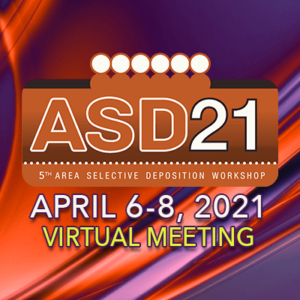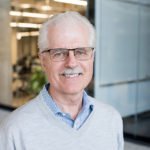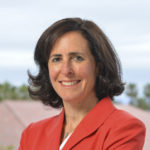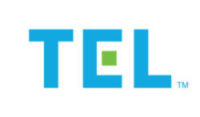Overview
 Developments in nanoelectronics and nanoscale surface modification have continued to drive the need for more elegant and reliable bottom-up area selective deposition (ASD) strategies. Most notably, the semiconductor industry has relentlessly pursued sub-10 nm transistor fabrication for next-generation devices, an endeavor that increasingly relies on selective deposition techniques to facilitate proper material alignment. However, other fields beyond traditional transistor fabrication have also found potential applications for selective deposition. Mixed-material catalysts have consistently shown the benefits of having site-specific material growth, but new optical devices and materials for energy storage have also contributed to an increased focus on developing new strategies for ASD.
Developments in nanoelectronics and nanoscale surface modification have continued to drive the need for more elegant and reliable bottom-up area selective deposition (ASD) strategies. Most notably, the semiconductor industry has relentlessly pursued sub-10 nm transistor fabrication for next-generation devices, an endeavor that increasingly relies on selective deposition techniques to facilitate proper material alignment. However, other fields beyond traditional transistor fabrication have also found potential applications for selective deposition. Mixed-material catalysts have consistently shown the benefits of having site-specific material growth, but new optical devices and materials for energy storage have also contributed to an increased focus on developing new strategies for ASD.
In an effort to help facilitate the progression of ASD techniques, The University of Texas at Austin University is proud to host the 5th Area Selective Deposition Workshop (ASD 2021), which will be held on April 6-8, 2021. The Area Selective Deposition Workshop scheduled for April 2-3 (ASD 2020) was postponed in March 2020 due to public health concerns relating to the coronavirus disease (COVID-19) and was later cancelled in anticipation of ASD 2021. ASD 2021 retains much of the character of previous workshops and what was intended for ASD 2020, albeit in a virtual format. This year’s workshop will act as a central event for sharing and discussing the newest developments in ASD by gathering leading experts from both academia and industry. Attendees can expect to participate in talks regarding fundamental challenges related to recent developments in ASD, applications for ASD in next-generation technology, emergent processes for implementing ASD techniques, and new perspectives on metrological and characterization strategies for further understanding persistent mechanistic challenges.
The workshop will begin at 10:00 am (CST) and end at 3:00 pm on April 6 and 7 and at 2:00 pm on April 8. Times have been selected to enable participation for registrants spanning the West Coast to Europe. The workshop will include live sessions consisting of invited and contributed talks and panel discussions. A session moderator will ask questions that are entered onto the meeting presentation platform from registrants. Live poster sessions will be held after the oral presentation sessions on April 6 and 7; poster presenters will preload five-minute oral highlights of their poster one week before the workshop.
Technical Program
All Times Are Central Daylight Time (USA)
Program Co-Chairs

John G. Ekerdt
University of Texas at Austin, USA

Stacey Bent
Stanford University, USA








